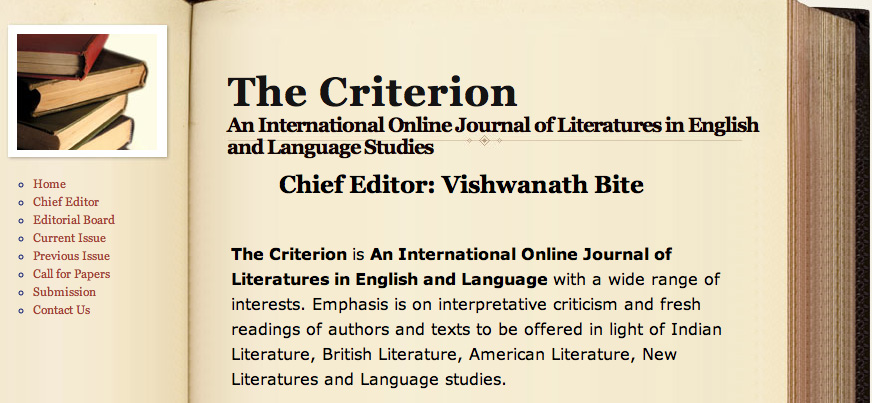 The Criterion: An International Online Journal of Literatures in English and Language Studies, has put out a call for Indian scholars to submit papers for a special issue on John Updike, to be titled “Indian Perspectives on John Updike.”
The Criterion: An International Online Journal of Literatures in English and Language Studies, has put out a call for Indian scholars to submit papers for a special issue on John Updike, to be titled “Indian Perspectives on John Updike.”
In announcing the special issue, editor Vishwanath Bite writes, “One of the most critically respected and popular contemporary American authors, John Updike died in January 2009. We propose to bring this volume in his memory and expose Indian thoughts over his literary works. Updike has amassed a large and ever-growing body of best-selling novels, acclaimed volumes of short stories, essays, and poetry since his arrival on the literary scene in the late 1950s. An incessant chronicler of post-war American customs and morals, Updike alternately finds humor, tragedy, and pathos in the small crises and quandries of middle-class existence, particularly its sexual and religious hang-ups. His trademark fiction, largely informed by Christian theology, classical mythology, and popular culture, is distinguished for its broad erudition, wit, and descriptive opulence.”
The Call for Papers from Prof. Bite suggests possible topics on “Updike’s distinct prose style, the realist tradition in a literary mode of Updike, description of the real world over imaginative or idealized representations in Updike’s novels, the portrayal of the physical world and everyday life in Updike, the problem of faith and morality in the modern post-Christian world, autobiographical elements in Updike’s novels, spiritual quest for self-fulfillment and meaning, post-war American social history in Updike’s novels, the domestic reality of suburban middle-class American life, marital tensions, sexual behavior, relationships between men and women, religious beliefs in contemporary society, magic realism, American and Third-World ideology, a reinterpretation of the medieval Tristan and Isole legend, religious doubt, mediocrity, fame, and fanaticism, humor, clever linguistic turns and sophisticated witticisms, and Updike’s poetry.”
Needless to say, it will be fascinating to hear what Indian scholars have to say about Updike, and we thank member Pradipta Sengupta for alerting us to the journal, which she says is projected to be published online in January 2010.
